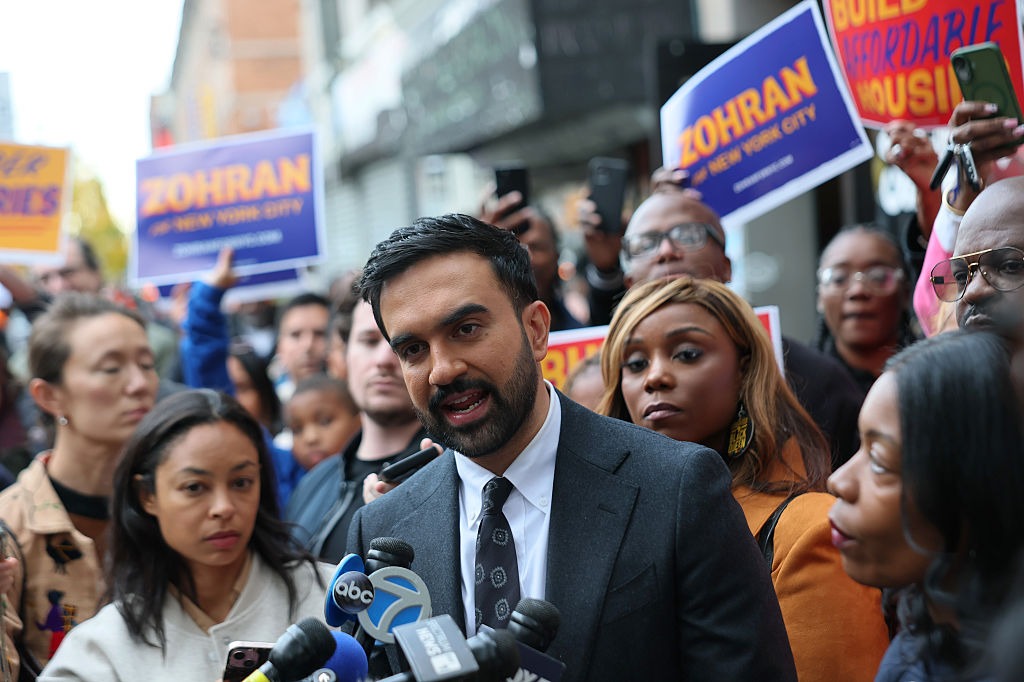The Rising Political Star: Zohran Mamdani and the Charge Against Islamophobia
In the final weeks leading up to Election Day, New York City Democratic mayoral nominee Zohran Mamdani has found himself at the center of a politically charged atmosphere. As he aims to become the city’s first Muslim mayor on November 4, Mamdani is not just campaigning; he is actively countering a wave of criticism that he characterizes as steeped in bigotry.
Confronting Bigotry Head-On
Mamdani recently stepped into the spotlight by addressing the Islamophobic rhetoric that has surfaced throughout his campaign. Drawing inspiration from Nobel Prize-winning author Toni Morrison, he pointedly remarked that “the function of racism is distraction.” This observation, articulated during an interview with MSNBC, underscores his belief that the outlandish accusations leveled against him are not only unfounded but are also a testament to his opponents’ inability to present viable solutions to pressing urban issues like housing affordability.
He stated, “So much of the unabashed bigotry we’ve seen… is a reflection of their own recognition that they do not have a plan to make the most expensive city in America affordable,” a pointed jab directed at his critics, including high-profile figures like Curtis Sliwa, Andrew Cuomo, and Eric Adams.
Attacks on Identity
The New York mayoral race has been anything but typical, with Mamdani facing smears labeling him a “communist” and “Marxist.” These assertions have drawn sharp rebukes from supporters who argue that such labels are often cloaked in racism and Islamophobia. His principal rival, Independent candidate Andrew Cuomo, added to the fray by laughing off a derogatory joke suggesting Mamdani supported the September 11 attacks. This kind of rhetoric raises serious concerns about the level of discourse in the political arena.
Striking Back with Substance
In a bold move, Mamdani addressed a particularly insidious incident involving an AI-generated video released by Cuomo’s campaign. This video depicted Mamdani engaged in a culturally common practice of eating with his hands, a point of ridicule rooted in ignorance. Additionally, the video featured troubling imagery, including a Black man shoplifting while adorned with a kaffiyeh, a garment that holds significance for many as a symbol of resistance.
Mamdani’s response was resolute. He presented a heartfelt speech condemning the “racist, baseless” attacks aimed at him, revealing the emotional toll such bigotry has wrought. “I took a step back and listened to what was being said… as someone who supported global jihad,” he reflected, highlighting the absurdity and danger of such claims. His observations were not just about personal grievances; they point to a broader issue of Islamophobia woven into the fabric of New York City’s political landscape.
The Impact of Political Rhetoric
What stands out in Mamdani’s narrative is his recognition of the systemic nature of the Islamophobic sentiments that have permeated New York politics. He remarked on the endorsement of Cuomo by the current mayor, Eric Adams, framing it as an attempt to prevent New York City from becoming a “Europe” where violence and extremism infiltrate society. Such comments reveal an underlying fear among some factions about the potential ramifications of electing a Muslim mayor.
Mamdani’s criticisms go beyond mere electioneering; they venture into a crucial territory where ethnic and religious identity intersects with political strategy. He articulated feelings of frustration when faced with advertisements and speeches that invoke terrorism and jihad alongside his image. “These ads are intended to terrify New Yorkers as to the prospect of having a Muslim mayor,” he asserted.
A Broader Reflection on Political Climate
Ultimately, Mamdani’s candidacy is more than a quest for political office; it represents a challenge to entrenched narratives about race, religion, and leadership. His declaration that Islamophobia has become “endemic” in politics raises important questions about how diverse identities are perceived and treated in the electoral process.
Mamdani highlighted that it often takes the form of “desperate men looking to salvage the little power that they still had,” signaling a broader cultural shift that may be spurred by younger, more diverse candidates who refuse to conform to traditional political molds. As he continues to navigate the complexities of his candidacy, Mamdani stands as a potent reminder that the future of NYC politics may very well hinge on the ability to confront and dismantle bigotry in its many forms.



